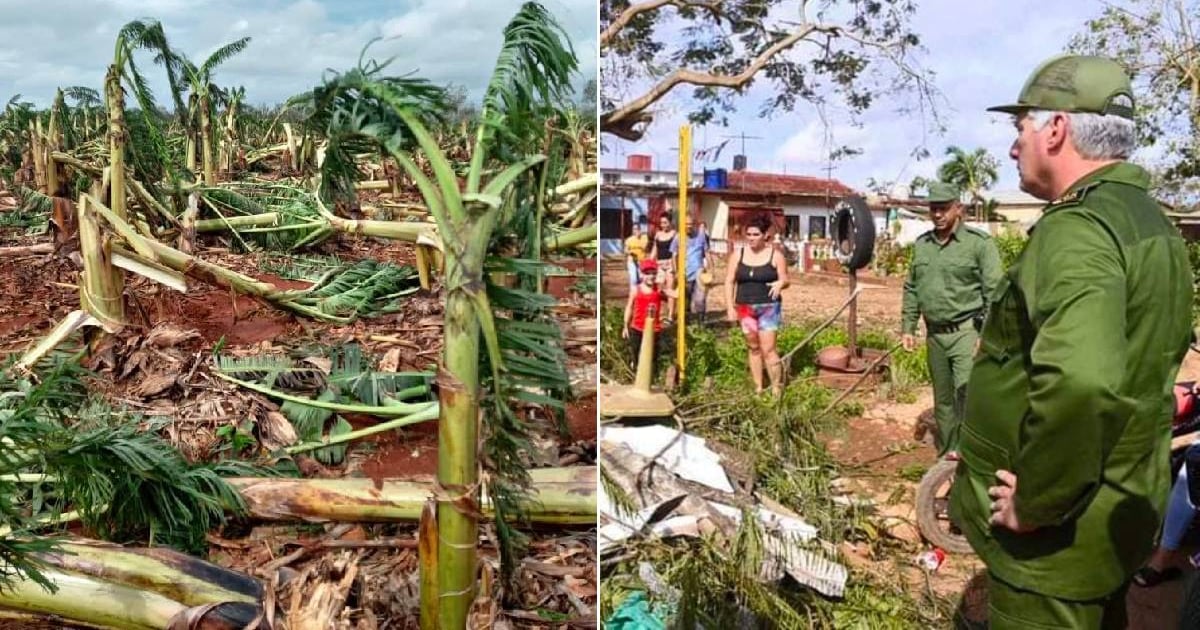The destructive force of Hurricane Rafael has left a trail of devastation in the agricultural sectors of Artemisa and Mayabeque, two of Cuba's key food-producing regions. According to Yohan García Rodas, General Director of Agriculture at the Ministry of Agriculture, the storm severely impacted the main crops in these areas, which supply a significant portion of Havana's food, as reported by the state-run portal Cubadebate.
The situation is particularly dire in Artemisa, where 100% of the 9,000 hectares of banana plantations have been decimated, García Rodas explained. This crucial crop for the local diet has been severely affected by both the hurricane's powerful winds and relentless rainfall. Social media images depict the widespread destruction across these plantations. Additionally, Mayabeque's losses, while less severe overall, include significant damage to 3,800 hectares of cassava.
Pre-Hurricane Agricultural Progress Undone
Before Rafael's arrival, the region was experiencing a promising cold-season campaign with over 9,500 hectares planted with various crops, including more than 14 hectares of bananas and 8,000 hectares of cassava. However, the hurricane's aftermath has left much of these productive lands in ruins, threatening the already strained food supply on an island grappling with hunger and limited access to food.
Since Thursday, assessment teams have been evaluating the damage to crops, fruit trees, and greenhouses across the region. The most affected areas include Güira de Melena, San Antonio de los Baños, Alquízar, and Artemisa itself. Notably, over 1,000 hectares of vegetables intended for Havana's end-of-year supply have been damaged. While several greenhouses suffered structural damage, most roofs remain intact, facilitating recovery efforts, according to the report.
Adjusting Agricultural Strategies Amid Crisis
Despite ongoing recovery efforts, the situation remains critical. Notably, the bean crop, which started planting in September, has suffered losses of 700 hectares, delivering a significant blow to the early stages of the cold-season campaign. Cuban authorities are now revising their agricultural strategies, prioritizing short-cycle crops that can be quickly planted and harvested. Additionally, the potato campaign, set to begin next week, remains a priority to ensure food supplies in early 2024.
This agricultural crisis compounds existing challenges that Minister of Agriculture Ydael Pérez Brito has repeatedly highlighted, including a severe food crisis marked by declining protein production, shortages of agricultural supplies, and fuel deficits for farm machinery. The Cuban agricultural sector also faces structural issues such as an aging rural population, labor shortages, and delayed payments to producers, further complicating recovery efforts.
Hurricane Rafael, which struck western Cuba as a category 3 hurricane on Wednesday, exacerbated pre-existing agricultural woes, highlighting the dire food scarcity impacting the population, particularly in the production of animal proteins like pork, eggs, and chicken. The government's urgent focus remains on addressing these critical shortages in the wake of the storm's aftermath.
